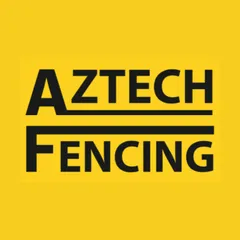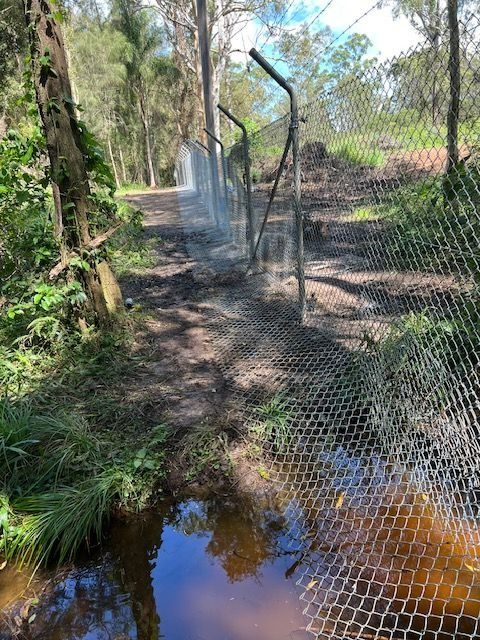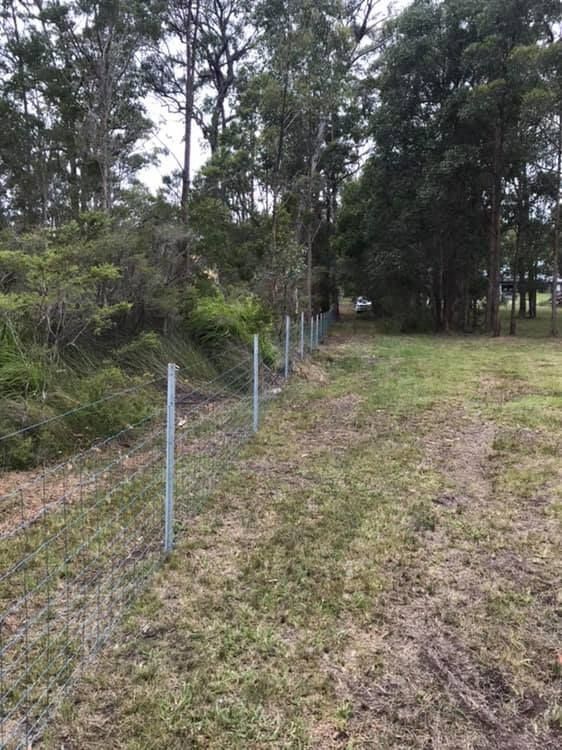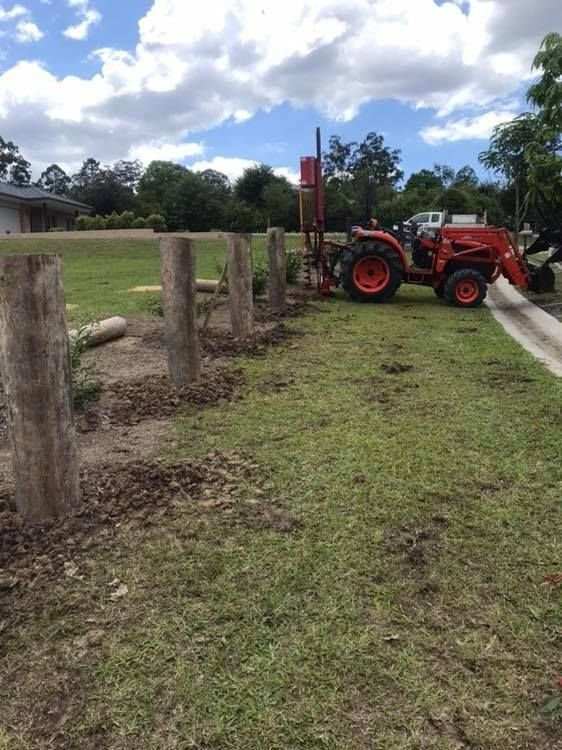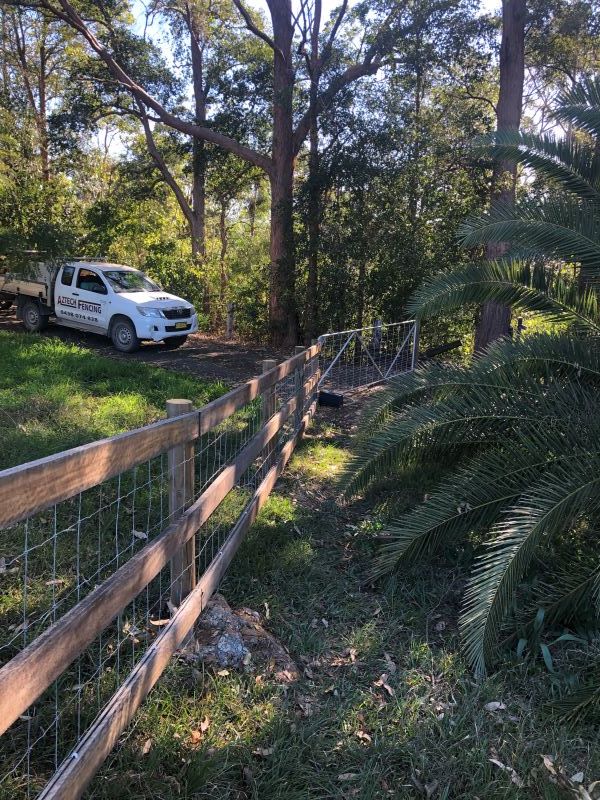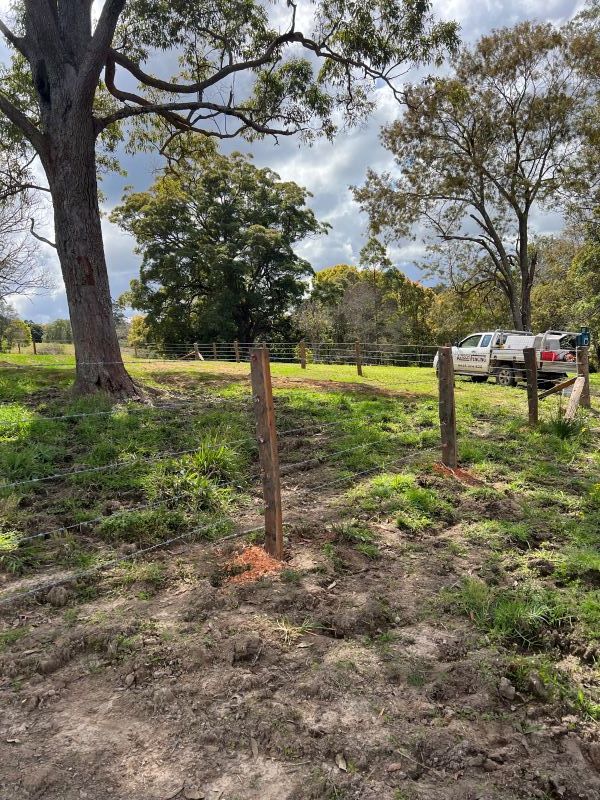- Free Quotes
- Competitive Pricing
- Award Winning Removalists
Farm Fencing on the Mid North Coast
- 20+ Years’ Fencing Experience
- Made-to-Order Fence Solutions
- Servicing Residential & Rural Needs
Request a Call Back
Contact Us
Thank you for contacting Aztech Fencing.
We will get back to you as soon as possible.
Oops, there was an error sending your message.
Please try again later.
Mid-North Coast Farm Fencing
Farm fencing on the Mid-North Coast needs to do more than mark a line — it needs to keep livestock secure, stand up to tough weather and last without constant patch-ups. That’s where we come in. At Aztech Fencing, we build strong, purpose-built fencing for rural and industrial properties across the region, using proven materials and methods that suit the land they’re going on.
From post and rail runs for horse paddocks to chain wire enclosures for commercial sites, we tailor every build to the job at hand. We understand the practical side of rural fencing — gate placement, stock pressure, machinery access — and we’re just as comfortable working on wide-open acreage as we are around sheds, tanks and yards. If you need a fence that handles hard use and still lines up square, we’ll make it happen.
Call 0438 074 828 to speak with a team that knows rural and industrial fencing inside out.
Built for Work
We’ve seen it too many times — fencing that looks fine on day one, but wasn’t built to suit the land or the job. Posts that weren’t driven deep enough. Rails are too light for stock pressure. Gates hung in the wrong spot or were too narrow for machinery. It’s not just frustrating — it costs time, effort and money to fix.
We don’t take shortcuts, and we don’t make assumptions. Before we build, we check the ground, measure for strain and talk through exactly how you’ll be using the space. That way, your fence works with the way you move, not against it, and it won’t let you down when the weather turns or the stock pushes hard. We build fencing that’s practical, well-planned and ready for the long haul.
Get in touch with us today, we’ll help you get your rural fencing sorted.
Post & Rail Fencing on the Mid-North Coast
Post and rail fencing is a smart choice for horse paddocks, rural driveways and larger boundaries where visibility and low stock impact matter. We offer several build options — including treated pine, hardwood or galvanised steel posts paired with timber rails — so you can choose what suits your site and livestock best. Each fence is laid out with proper spacing, deep-rammed posts and strong rail fixings to ensure a straight, solid finish that won’t shift over time.
Call 0438 074 828 to discuss post and rail fencing options for your property.
Rural Fencing on the Mid-North Coast
Rural fencing isn’t one-size-fits-all — it needs to match the land, the stock and the way you work. We build fencing systems that go beyond the boundary line, with options for integrated gates, permanent and temporary sections, stock flow control and water source protection. Whether you're fencing in open paddocks, sectioning off yards or creating safe access to cattle crushes and loading ramps, we’ll design a layout that holds up to pressure and keeps your property running smoothly. Choose from timber, plain or barbed wire, dog mesh and more — all installed with stock safety and long-term use in mind.
Call 0438 074 828 to get a rural fence built to suit your land, your livestock and your workload.
Chain Wire Fencing on the Mid North Coast
Chain wire is a tough, no-nonsense option for securing industrial yards, commercial sites and utility areas. We install high-tensile mesh in a range of heights and gauges, with optional barbed wire for added security. Every panel is properly tensioned and fastened for strength that holds — no sagging, no shortcuts. It’s a low-maintenance, high-strength setup that delivers solid perimeter control without the visual bulk of solid fencing.
Call 0438 074 828 to lock in a chain wire solution built for your site.
What is chain wire fencing used for and is it suitable for securing industrial properties?
Chain wire fencing is commonly used to secure commercial and industrial properties, storage yards, carparks, utility sites and sports facilities. It’s strong, cost-effective and allows clear visibility while marking clear boundaries. In industrial settings, it can be topped with barbed wire for extra security, and the mesh comes in different heights and gauges depending on your needs. It’s ideal when you need a tough, low-maintenance solution that keeps the site protected without fully closing it off.
What are the best types of farm fencing for livestock, and how do they differ?
The best farm fencing depends on the type of livestock. Plain wire or electric fencing works for cattle, while barbed wire adds extra containment for tougher stock. Sheep and goats often need tighter mesh or dog-proof fencing to prevent escapes. Horses benefit from post and rail fencing due to its visibility and low risk of injury. Each type balances strength, safety and cost — the key is choosing a fence suited to your animals, land and management style.
What is post and rail fencing, and why is it commonly used on rural properties?
Post and rail fencing is a timber or timber-and-steel fencing style made from upright posts and horizontal rails. It’s widely used on rural properties for its strength, visibility and ease of access. Common on horse properties and lifestyle blocks, it’s ideal for defining space without restricting airflow or views. It’s low-impact on livestock, especially horses, and has a tidy, traditional look. Post and rail fencing can also act as a base for wire mesh if added containment is needed.
